|
4/4/2022 I Want Kristin Garth.In Another Installment Of, "I MIght Be Biased, But..." I Might Be Biased, But... allows the editors and writers of MeowMeowPowPow to throw journalistic objectivity out the window, and interview and/or write about the creators they admire and enjoy, even if they have a personal relationship with that creator. I wrote the following about Kristin Garth (lolaandjolie on Twitter, kristiningridgarth on Instagram) and her new book, a short story collection called You Don't Want This: “You Don’t Want This” isn’t just the title of Kristin Garth's anthology of short fiction (available for pre-order on Pink Plastic Press), it’s the inscription on the gates outside her realm of hustlers, harlots, and heroes (some who are all three at once). But this ain’t Hell, this is Florida. The ferry carries you through strip joints and sex dungeons, but also where the world, the flesh, and the devil lurk in videostore back rooms and all-night greasy spoons. Garth balances dark humor and wickedly witty turns of phrase with the lyrical touch of a poet, chasing tempests of brutality and trauma with an undercurrent of hope in the form of sexual liberation. These stories reveal the underbelly that is just as much America as the surface if not more so, the evil that men do and women do their best to survive through. The gods will not save you, and neither will Daddy, but a dance mom reality show star may be the light to guide you out of the darkness. After you begin “You Don’t Want This,” you won’t want it to end — it’s not just the awakening we desire, it’s the apocalypse we deserve. Garth's site and bio describe her as a "womanchild sonneteer," and in a previous interview, she mentioned aspirations to be a "prolific vixen." She has certainly achieved that with her body of work. We got to know each other through reading each others' submissions as editors, with Garth appearing in Screenshot Lit about a year ago, and my upcoming essay appearing as part of The Book of Koreinthians on Pink Plastic Press. We also chat from time to time, and I posed a question to Garth that spawned into a full interview covering her childhood, her past on strip club stages, her flirtation with the dark and struggle with shame, and what the community she has developed alongside as a writer and editor means to her. (Please be aware this discussion covers abuse, assault, and other trauma.) The following is a slightly edited collection of correspondence. I'm thrilled about it because I wanted the MeowMeowPowPow readers to get to know her like I have. I always want to hear what she has to say, I want to read more and more of her work, and I want everyone to know why You Don't Want This is a great place to start. So you want Kristin Garth already? Here she is... I just found out tonight that you know my old friend Jessie Lynn McMains, who I know from... we'll say, another lifetime. How was it working with Bone & Ink Press? The collaboration I did with Bone & Ink and my co-author Elizabeth Horan was called Pensacola Girls. A young neighbor of mine, a young girl named Dericka Lindsay was killed by her relatives, a culmination of a lot of abuse that had been going on right down the street from where I lived. I chatted with Dericka and her sister many days on my way to the running path I frequented. They were always outside and the most outgoing and sweet girls, dressed well and polite. I had no idea of the abuse going on inside that house until Dericka was murdered and her death haunts me. I grew up in a house of violence dressed up and hidden so I felt I should have seen it, and I definitely didn’t. At the time of Pensacola Girls, this was all a new wound. I had met Elizabeth Horan online who told me she was born in Pensacola, where I live and Dericka lived. We had that in common and also the three of us had a background of trauma in common. We wanted to write something about trauma and place. And I very much needed to process my grief and my feelings of guilt for not seeing another child who suffered so much more than me and hid it. I think of her all the time. I left that neighborhood as soon as I could because I couldn’t see that house anymore. I think I felt sorry for myself a lot — too much before Dericka — for the pain I had survived as a victim of childhood sexual abuse, What I learned after this was that surviving is a privileged position. It doesn’t excuse your abusers but I have learned to really be grateful to be an adult and express myself as an adult, to be okay with being sexual when that was used against you. I see all that as a triumph and I see myself as very lucky to be alive and be safe and be myself at last. You've mentioned about writing from a place of "shame." Where does that shame come from? Is that still true, with something like You Don't Want This? Or have you worked past it? Or do you even need to? I am full of shame to this very day. People who have never talked to me — like had a verbal conversation don’t get that, but I think people who have in this community get it more. When I stripped I was full of shame about it and also rebellion but I was the “schoolgirl stripper” so it worked. I wore Catholic schoolgirl skirts and cheerleader costumes and I was like the runaway girl next door and in fact that was kind of what I was — even though I was in, fact, older. Like the character of Livi, in “Livi On The Dance Floor,” which is in my new book You Don’t Want This. I was in graduate school when I started dancing — though I dropped our because I needed financial stability and a sanctuary at that point from abuse more than I needed a graduate degree. I’ve always looked younger than I am. When I was younger I hated that. I wrote a sonnet once called You Were Built To Be Possessed. It’s in Yes Poetry and it tells about going to a restaurant with my parents at 20 and being brought a child’s menu, and my parents thought it was so funny, and I just cried. I felt at this time I would never be seen as an adult — that even my face conspired against me. Being a child was a dangerous thing in my life. It meant I had no rights to my body or life choices; I was being sexually abused by one religious zealot parent while the other parent was consulting to surgically remove my breasts to be less enticing. This is what looking like an adolescent meant to me. Only when I started stripping did I feel like I had power — financial power that I derived from my weird birthright of a childish face and a womanly body but only if I could contend with the shame and the other of whispers of repression in my head. They are still there. Even in writing. I’ve just kind of learned that if I feel ashamed, what I’m doing is probably raw and real and is going to translate. So I do it anyway. I’m a shameful exhibitionist. I wasn’t the only one like this in the strip club. Is there a sense of pride that resulted from your time as an exotic dancer, using the experience to draw a line between your "puritan" and abusive childhood, and being a liberated adult? Or was the transition traumatic for you, albeit informative for your writing? I live in the Bible Belt Deep South. Pensacola is a place where abortion doctors have been shot. A church rented the building across the street from the strip club where I worked just to harass the patrons of the club and the dancers. Ironically the law in Pensacola doesn’t allow a strip club to open proximate to a church but there was no prohibition the other way around. I wrote about this in the sonnet Hate Has No Restricted Zone, published in Ice Floe Press. I give all this context to say that I became very reclusive when I became a stripper. It happened after several events that happened while I worked there including a stalker I had to press charges against and testify at his trial and an arson of my house. After these two things, I stopped going to bars or parties or really socializing that much. I worked and I came home and I even married a professor for a time — even though we lived in separate bedrooms and it wasn’t a good match. I just wanted to be safe. Once I was removed from that world and I became a court reporter for a period of time — even though I wasn’t living my authentic life yet (being a publishing writer), I did decide that I would, when asked, always put it out there that I had been a topless dancer. I guess I felt in a big small town like Pensacola was that it was going to get around because lawyers were always in the strip club and some definitely knew me from there. It’s in fact how I decided to do that job — a lawyer who I spent the night in the club entertaining suggested it to me as a career. Being forced to own that truth was a very important step to me to be able to have the courage to publish. Once I told that truth about myself, I was inundated with questions and I realized the power of my perspective and voice. So I am proud of myself for not only doing something I loved in spite of the shame. I never felt as much myself as I did on the strip club stage until I became a Girl With A Pen. I grew up in Arizona, and I live in a part of Arizona now with a lot of Mormon churches. I knew you'd dealt with religion, I didn't know that it was as part of the LDS church. Do you have any connection to it whatsoever now, the culture of it, or did you make a clean break? My book Puritan U which was published by a now defunct press is all about my Mormon upbringing, abuse within that context, being forced to attend BYU and being sexually assaulted there. To me, based on my admittedly super fucked up experiences, I completely associate Mormonism and abuse. I was sent by an abuser to a university where I was sexually assaulted on an EcoResponse camping trip and that assault was eventually covered up by the school. After this married man repeated to his bishop for his transgressions, my own bishop, without any warning to me, gave him my phone number and allowed him to just call me, a man who had choked me in the cold, dark desert to apologize — ask me to dinner. I cannot describe to you the depths of despair and just animal fear I felt being at that school after I hung up the phone that day. This is what I associate with Mormonism — this kind of animalistic male violent urges that are so repressed that when they appear it is with a hateful violence and then a conspiracy of priesthood holders to hush it up. I know that is a generalization but it is my truth that happened to me twice and I fear religion in my bones because of it. I have no connection to the Mormon church or any church. You have been so adept at using multimedia to promote yourself and your work. These very enchanting sock photos where you model new themes and motifs via your feet almost every day... your videos and audio files of you reading your work... I even got to know you better from watching the TikToks you were briefly producing (we've talked privately about how it is a bear of a platform to keep up on!). Is this something you set out with intent to do, an arrow in the quiver? Or is it an effort that just accumulated inadvertently as you explored platforms, and one day you just found that you had transformed into a social media superstar? I think social media was just comfortable to me from the beginning the exact way that a strip club was comfortable to me. When I stripped I did it my own way; I was the only girl who most nights wore a tiny skirt instead of just a thong. I wore pigtails and bows. I showed my womanchildishness and it gave people an opportunity to wound me in really real ways but also to care for me in exactly the way I wanted to be cared for. It was a risk because I’m sensitive and it’s kind of like in You Don't Want This when I say in “Behind The Wheel” which is one of the true stories in the book “make your weakness your trademark.” What I meant is that I showed vulnerability in a place where that is hard and even dangerous to do. I suffered for that at times but I also met people along the way who protected me and cared for me in ways that transcended what people might think of as dynamics of a strip club. I feel that I’m the same way on social media and I have had some of the same results. I’ve had my heart broken here in so many ways I can’t even begin to describe. And while I’ve learned to make some boundaries because of that, I can’t say that I’m not vulnerable to it again. I’m vulnerable and it means I can be broken but it’s also very relatable and honest. I do not at all think of myself as any kind of social media star; I do think that some people really get me because I make myself expose my weak, weird self. I do have to make limitations for myself about social media because of safety and because of the constraints of being one individual doing too many things. I’m so glad you enjoyed my brief tenure on TikTok. It makes me glad I tried it. I literally am in a battle with time always and though I enjoyed TikTok I really could not justify the time it took to maintain three social media platforms. For years I was not on Instagram. But when I was publishing my book The Meadow at APEP, my publisher suggested it and so I tried it and really enjoyed it for the visual component, showing off my socks and my selfies as well as my writing. I love the curation and the opportunity to show my aesthetic. The whole idea for this "Biased, But..." series on MeowMeowPowPow is about showing off great writers I know because I am in this community. What has the community meant for you? Literary Twitter, Poetry Twitter has been like a return to graduate school to me. When I first decided that I had to publish I was chronologically old (though most days I feel about 13 on the inside.) I felt so inept to be publishing with people who were such academics. But the thing about me is that I really am a schoolgirl. I love learning and I’m not ashamed to say I want and need to learn more. I found mentors in this community in perhaps unlikely ways but they became teachers all the same. I felt so connected to artists in a way I hadn’t since I dropped out of my creative writing graduate school. I got to collaborate with people and learned so much from those experiences. I learned to become an editor and I will forever be grateful for that. This place is full of experiences that I thought had passed me by and some I never even dreamed. We agreed to do this interview after I asked you casually, "Do you consider yourself a transgressive writer?" Your answer seemed to be that you didn't pursue or embrace it, but it's kind of what people told you because of the "weird places" your writing takes you, and the conflict of love/hate relationships with abusers... and we kind of went from there when we decided to make this an interview. But to return to that first questions about labels... I am so bad at labels. I’m bisexual. I’m complex. I am many different things because I have lived a lot of life. I have spent time with some evil people unfortunately in my life and I have written from points of view I don’t agree with in order to release some of the power those people have had over me. I wrote a story in graduate school that is in You Don't Want This called "Obsolescence." It’s a fictionalized version of a relationship I had with a guy whose fetish I found out was corrupting drug virgins. In the story I wrote his POV on the relationship and life after finding out that this was his thing. I’m definitely not writing from his POV because I think it is cool that he wanted me to get addicted to drugs, and I guess for him only to move on to the next innocent when I was. I hated him for that, but I guess I just wanted to explore what happened to me in the POV of this person I gave all this power. I think I like to experiment. You were always in Pensacola, right? (Except for travel and some of the school enrollment, I mean.) Growing up there, living there now, you've said it makes you feel connected to the Southern Gothic tradition, and maybe also influences your interest in horror? Besides Poe's influence on your sonnets, what is the scary stuff you like to read? And how scary do you think You Don't Want This is? What other works of yours would you consider "scary"? I am a Pensacola girl, third generation in a tourist, military town where there aren’t that many people who have those roots. Weirdly though because of things like my pale skin and dark hair in a land of blonde, tan people and also my odd religion that people in a Bible Belt place did not understand, I always felt like an outsider. Being reclusive the way I became after stripping and living remotely the way I do now in the woods nor around a lot of people, I feel very connected to the land and the trees of the south but not necessarily the people. I’ve suffered a lot here at the hands of southern men and once in graduate school a nefarious character I spent time with gave me a copy of William Faulkner’s Sanctuary to read. The villain in that story, Popeye, is from Pensacola and it just hit me like of course he is. I wrote this poem Southern Gothic Ghosts that was published in Ghost City Review. Tonight, I saw the quote where you said you aspire to be a vixen. That was five years ago. Are you there yet? (I think you are.) You Don't Want This is a lot of things, but one thing it is at times is sexy. Sometimes scary, but even the seedy bits are titillating. You've spoke about erotic literature having its place and that you hope you're inspired others to write some. What place does it have now in 2022, where does America stand when it comes to dealing with its puritan roots but its repressed urges? Okay you quoted me wrong here: prolific vixen. It actually comes from the website Scribophile where I first started writing before I published anything when I decided I must actively write again with the goal of publication. At that point I only had one publication to my name which was a sonnet published in an anthology of submissive women when I was in my early 20’s, and the only reason that poem was published is that my dom at the time submitted it for me. I was way too scared to submit my writing (but obviously was submitting in other ways). So when I, -many- years, later decided I was going to write I looked for a community to practice before I sent anything out to publishers and to kind of get advice. Scribophile allows you to publish to their closed community to workshop things and get feedback. This experience gave me confidence and I had work solicited from this sight for publication and then eventually moved myself to Poetry Twitter. But they have a publication tracker on that site I utilized for a long time and one of the members there christened me (because of my prolific publications) the prolific vixen. I loved that title and try to live up to it. I’m a Capricorn so I love work. I've spoken a lot about You Don't Want This as a truly American novel, I feel like you're revealing things about how we are as a country, as a society, that people don't like to talk about, that stories sometimes use as interesting dressing for its settings and themes... but you open it up building a whole world, or maybe just reporting on one? What are your thoughts? Thank you so much for saying that. I think nothing is more capitalistic than stripping. I always felt like I was doing the most American thing doing that job — and I’m not saying that is good or bad just that it is. I saw powerful people attempting to exploit women who were very vulnerable and vice versa. I think you understand power in all its permutations so completely in a strip club — the power of money, the power of youth, the power of fantasy. Power dynamics are definitely the overarching theme in most of my work. Even in stories in You Don't Want This, like “Whilst” and “Dispossessed,” they are stories of the power of a megalomaniac and the power of lust. I was powerless for so much of my life in traditional ways that when I learned about the subversive kind of power I did have because of my weird body, it was a fascination, a drug. I think that’s the ultimate American drug, power. Is there kind of a secret handshake to understand the world of You Don't Want This, a collective subculture or shared trauma that if a reader is not inside of, they're firmly on the outside of? To me writing these books I write - and there’s a lot of them now - it is all about the secret handshake. It’s not about anything else for me personally, writing, except being seen and understood. I’m not trying to take over the world or be a bestseller or make a fortune — not that I would turn down these things but truly none of those things have ever ever happened to me and I’m still satisfied somehow with what I accomplish. Art is not competitive for me. I won’t do contests. I promote myself but I don’t get attached to any kind of numerical results or statistic. I get attached to reader response, the way that people send me messages and tell me what it meant to them or leave reviews. I’m submissive. I like pleasing people and that’s what matters to me. And the release that writing gives me. What are your goals with Pink Plastic? What does Book of Koreinthians represent so far as a direction for the press? My goals with the press are similar. I want a house for all the ideas I could not express growing up. I want a place to house projects like The Book of Korinethians, the anthology I am publishing with my co-editor Diana Hurlburt about the films of Harmony Korine. We are so lucky to publish a piece by you in this anthology. I feel really lucky to have found a way to make ideas happen. I’m only one person and limited in what I can accomplish financially and time wise but I’m trying to publish some kind of print anthology at least once a year. I did Pinkprint before this which was an anthology I culled from Pink Plastic House a tiny journal , my online journal which I House at my website. What is most misunderstood about you? And what would you like us to understand or know? Anything else you want to leave us with? I feel like I come across online a whole lot stronger than I am and confident. I’m not either of those things. I correct people online all the time who call me “strong” because I feel very weak and still I do these things putting myself out there because it’s necessary I feel but not at all comfortable. For example, I have an online performance group called Performance Anxiety because I named it that — the girl who makes countless poetry videos but has never successfully read in public and almost certainly never will. I get anxiety every time I read with my own online reading group and hardly ever feel good about it. Just like when I was stripping, I get dressed up and show the people what I can make myself show what I can then go home to hide in the pink plastic house until I can work up the courage to do it again. You can be shy and weak and still be an artist. It helps to be a masochist, too. h. is the Meow Meow Pow Pow blog editor, a writer happy to be a contributor in the Pink Plastic family, and aspires to have his own decorative sock collection someday. His own examples of masochism and attempts at thwarting being misunderstood are collected at HubUnofficial.com.
Comments are closed.
|
AuthorOur fabulous blog team Archives
June 2024
CategoriesAll 12 Songs Art Art And Athletes Book Review Chorus Blog Date This Book Game Of Narratives Guest Blog Letter From The Editor Lifehacks Movies Of 2019 Music Pup Sounds Smackdown Strive For 55 Summer Playlists |
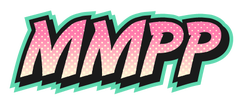
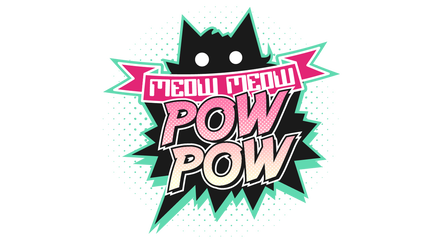
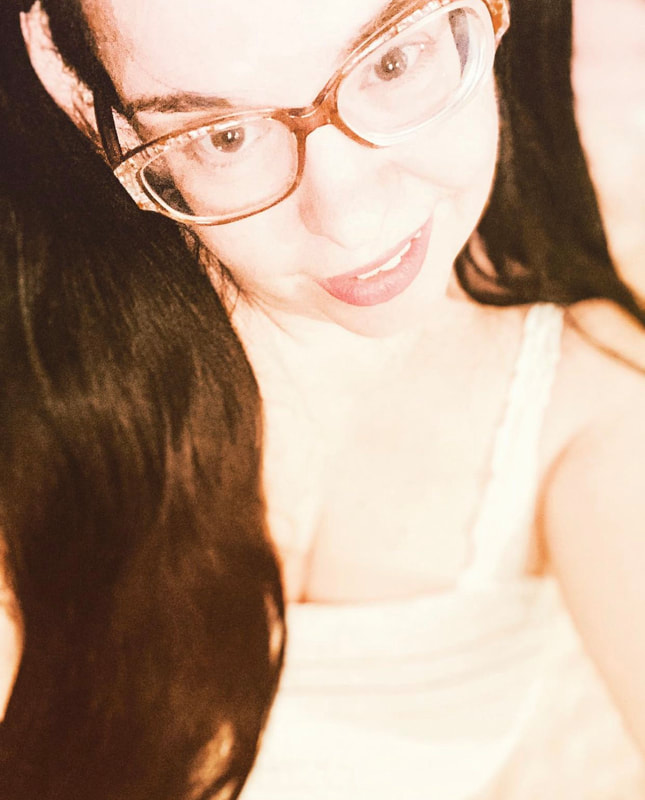
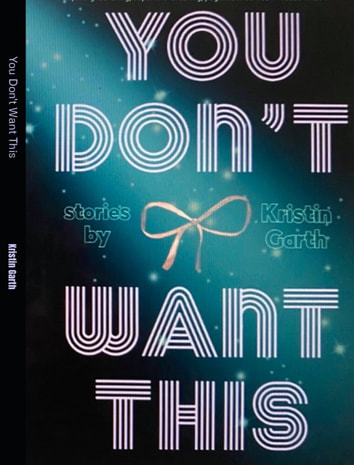


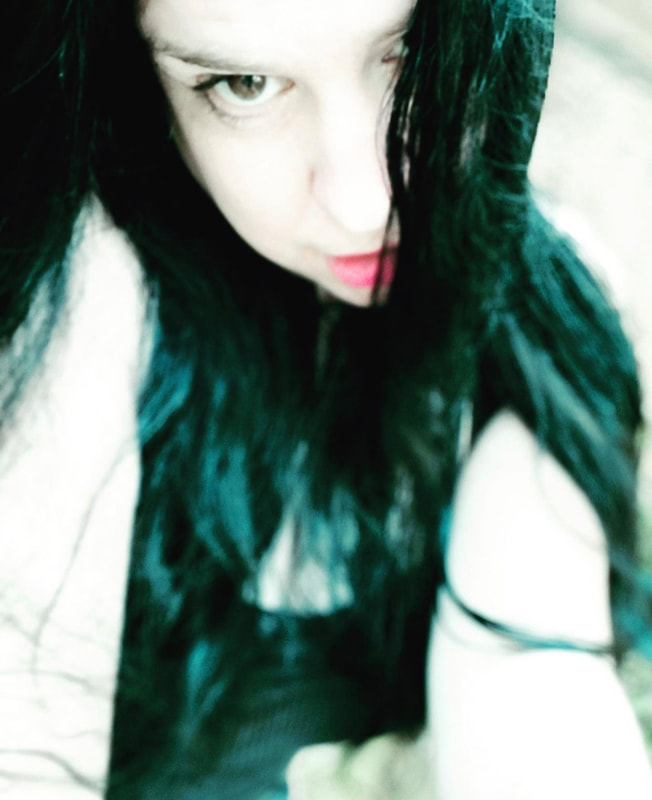
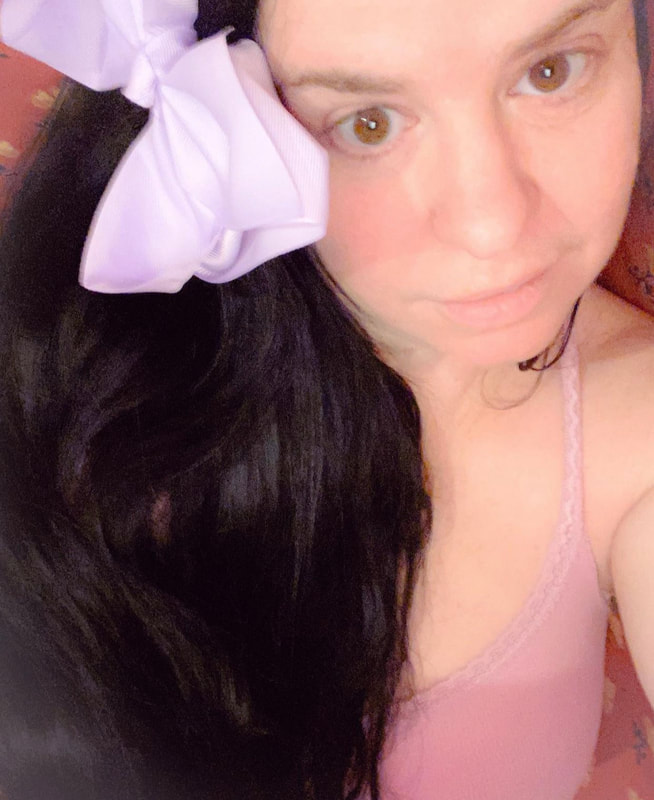
 RSS Feed
RSS Feed